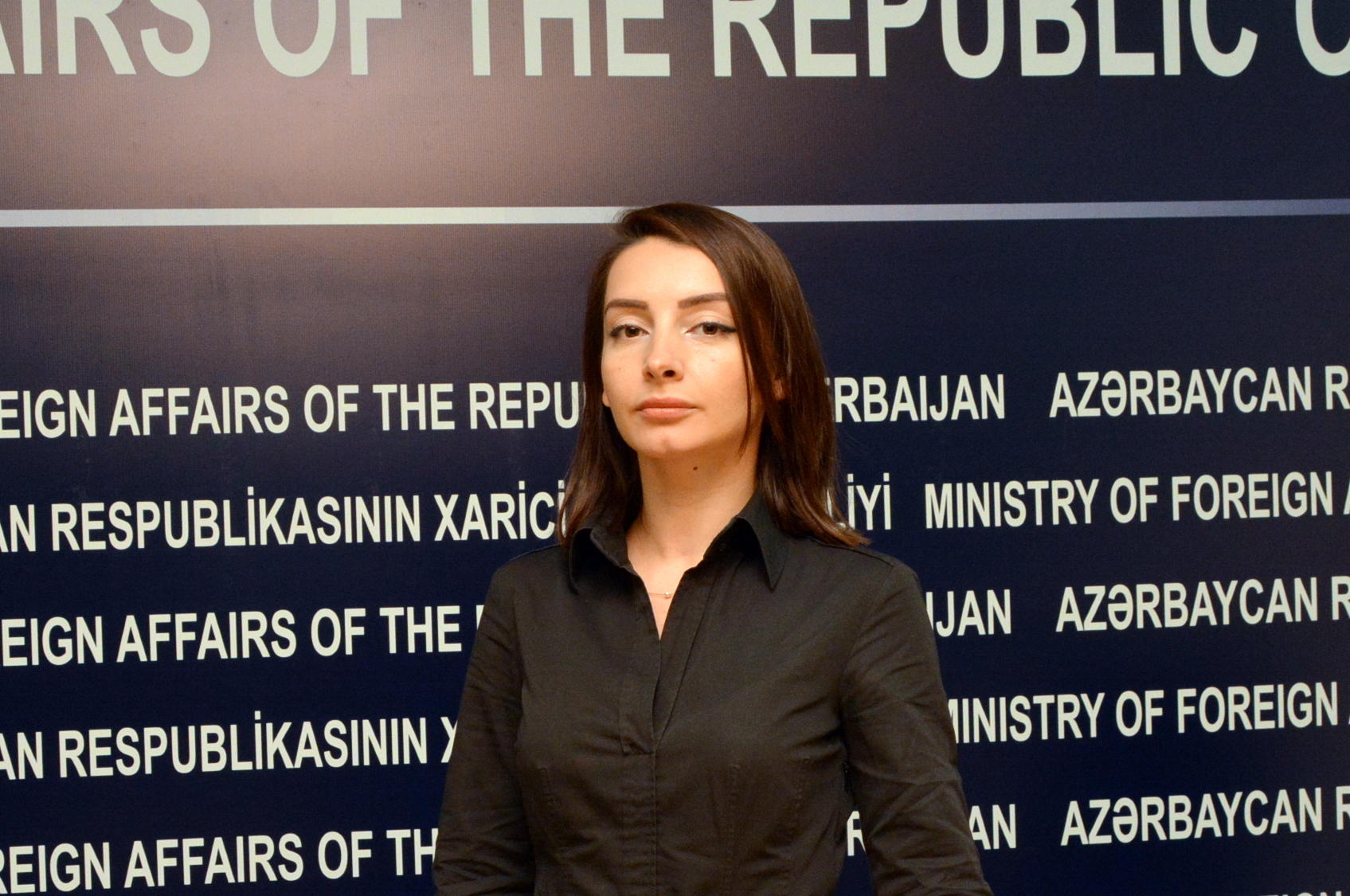Baku, Azerbaijan, Jan. 28
Trend:
Armenia must understand that the Nagorno-Karabakh conflict's settlement is beneficial for the entire region's development, spokesperson for the Azerbaijani Foreign Ministry, Leyla Abdullayeva, said.
Abdullayeva made the remarks at a meeting with Italian journalists in Baku, where a journalist from the Agenzia Nova news agency also participated, Trend reports on Jan. 28.
“The adoption of the declaration on the settlement of the Armenia-Azerbaijan Nagorno-Karabakh conflict during Italy’s OSCE chairmanship opened the way for the current intensive negotiations to resolve the conflict lasting for many years,” she said.
According to Agenzia Nova, Abdullayeva made this statement referring to the joint declaration adopted in Milan when the meeting of the Council of Ministers was held as part of the completion of Italy’s OSCE chairmanship in December 2018.
"Azerbaijan has a complex geostrategic position, which, of course, affects our foreign policy," Abdullayeva said.
Abdullayeva spoke about the occupation of 20 percent of Azerbaijani territories, including the Nagorno-Karabakh region, as a result of the conflict, and the problem of more than one million refugees and internally displaced people living away from their ancestral lands.
"Our goal is to return the occupied Azerbaijani territories through the maximal development of the country,” she added.
"If Armenia understood that as a result of withdrawal of its troops from the Azerbaijani territories the whole region would develop, all strategic infrastructure and energy projects in the Caucasus would be more functional," Abdullayeva added.
Touching upon the intensification of negotiations between Azerbaijan and Armenia in connection with the settlement of the Nagorno-Karabakh conflict, Abdullayeva stressed that Azerbaijani Foreign Minister Elmar Mammadyarov and Armenian Foreign Minister Zohrab Mnatsakanyan had a meeting in the 2+3 format (Azerbaijan and Armenia + co-chairs of the OSCE Minsk Group) in January 2019 and an agreement on the continuation of negotiations in February was reached.
She stressed the need to continue discussions, saying the new meeting will become important for mutual understanding of positions.
“Each side agrees that the bilateral negotiations consist of two official sides - Armenia and Azerbaijan,” she said. “Baku’s position on this issue is clear.”
"The structure illegally created in the Nagorno-Karabakh region is not recognized by any country, even by Armenia itself,” Abdullayeva said. “Azerbaijan only wants its territorial integrity to be respected."
Abdulayeva noted that settlement of the conflict is possible only after the de-occupation of Azerbaijani territories, including Nagorno-Karabakh, and the provision of a high autonomy status to the region within Azerbaijan.
Abdullayeva also highlighted another positive result achieved during the last meeting in Paris. She noted that during this meeting, there was emphasized a need for both governments to prepare the population of both countries for peace.
"Of course, it is not easy to resolve the conflict, but internationally recognized borders of all countries must be respected," she said.
The conflict between the two South Caucasus countries began in 1988 when Armenia made territorial claims against Azerbaijan. As a result of the ensuing war, in 1992 Armenian armed forces occupied 20 percent of Azerbaijan, including the Nagorno-Karabakh region and seven surrounding districts.
The 1994 ceasefire agreement was followed by peace negotiations. Armenia has not yet implemented four UN Security Council resolutions on withdrawal of its armed forces from the Nagorno-Karabakh and the surrounding districts.






